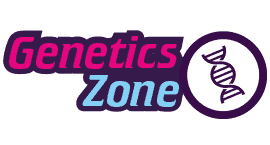-
Asked by anon-333787 on 7 Nov 2023.
-
Sophie Shaw answered on 7 Nov 2023:
The human genome project provided us with our “human reference genome”. In medical genetics we use compare all samples to these reference, and identify where there are changes in the patient. This is how we diagnose genetic disease. Without this reference genome, it was much more difficult to determine. Additionally the project lead to the development of new technologies to sequence DNA, which are now being used by researchers across the world in all fields of biology.
-
-
Nikoleta Vavouraki answered on 7 Nov 2023:
I agree with Sophie! I could add that there are still a lot off things that we don’t understand about our genes and their regulation but having that reference genome helps a lot. I would also like to add that we are trying to make this reference better. If we compare two populations: one in one part of the world and the second in the opposite part of the world, then these two tend to have some differences in the genome. So, we are trying to have more information in these reference genomes to have more versions of it, if I understand it correctly.
-
Hayley Free answered on 7 Nov 2023: last edited 7 Nov 2023 2:05 pm
As well as what has already been said, it really opened the door for bioinformatics – advancing computational techniques which have now been used in further large-scale genome sequencing projects. Having this foundation can help us understand areas from disease, to conservation and evolution.
-
Michael Schubert answered on 7 Nov 2023:
It’s had a lot of impact! It gave us the first (almost) complete picture of the human genome, although we’ve refined and expanded it since then. That showed us what our DNA looks like and what some parts of it should do. As Sophie said, it also helped us to develop new technologies, as well as new ways of collaborating in large groups or across long distances. When scientists saw that it was possible to take on such a big project and achieve it by collaborating, they were inspired to try other projects that were too complicated to do in a smaller group or with fewer resources. It also helped drive new ways of sharing information and technological developments (as well as agreements about when and how to do it).
There’s an interesting article about this that you can read if you’d like:
https://genomemedicine.biomedcentral.com/articles/10.1186/gm483
-
Louisse Mirabueno answered on 7 Nov 2023:
It’s impacted the entire genetics field! We now have a reference genome that we can compare other genomes to and find any differences in our genes, potentially explaining various different diseases. It’s been immensely useful to researchers around the world ☺️
-
Femi Oluwole answered on 8 Nov 2023:
The people that started and completed the human genome project have really opened up so many opportunities in the healthcare, research, education and suivellance. So many sequencing technologies have been developed. Most importantly, the impact can be seen directly in early diagnoses and genetics counselling. In the nearest future, the impact will be felt in precision medicine.
-
Martin Johnsson answered on 8 Nov 2023:
And for those of us who work on farm animals, the human genome project was important because it set off a series of projects to create reference genomes, and describe the genes of, many other animals. A chicken reference genome was published in 2004, a cattle genome in 2009 and a pig genome in 2012–and they’ve been regularly updated ever since.
-
Ping Zhang answered on 8 Nov 2023:
The human genome project provided detailed information about our genome sequences in each individual and across broader populations. Researchers can use it as a reference to align with other genomes derived from different cells and patients, identifying gremline and somatic genetic variation that are associated with diseases such as cancer. Further characterisation of the variation-residing genes can inform novel therapeutics.
-
Anu Shivalikanjli answered on 8 Nov 2023: last edited 8 Nov 2023 11:26 am
The Human Genome Project is like a big book that can tell us a lot about our bodies. It has led to the growth of knowledge in many different fields of biology concerning human, plants, animals and also non-biology fields like technology (computer science, machines)
1. Health: It helps scientists understand how our organs and metabolism function and why we think, behave, look like the way we do and sometimes get sick.
2. Customized Medicine: Just like we all have different favorite colors and foods, our genes are unique too. The project helps doctors make special plans for each person, like a superhero suit designed just for you. So, when you’re not feeling well, they can give you the medicine that works the best for you to make you feel better.
3. Family secrets: Our genes are like a family storybook. The Human Genome Project helps us learn about our family’s history. It’s like having a time machine that can show us where our ancestors came from.
4. Protecting endangered animals: Scientists use the project to learn about these animals’ genes and how to protect them. This can help save animals that are in danger of disappearing.
5. Better crops and environment: Farmers can use the project to protect their crops from bad bugs.The Human Genome Project has not only expanded our understanding of genetics but has also created numerous career options in healthcare, research, technology, and education.
e.g. Bioinformatician- They use computer science and biology to analyze genetic data. They develop algorithms and software to make sense of the vast amount of genetic information generated by the Human Genome Project and other genomic research.
More careers like clinical geneticist, genomic data science, genetic engineering, genetic counselor, ethics specialists, biotechnology specialist, bio-programming infrastructure (software/tools/ supercomputers) and even cooler machines that will enable us to see what is going with each cell of body (like sequencers, super powerful microscopes, imaging technologies). -
Rebecca Shaw answered on 8 Nov 2023:
It has helped loads! As some of the other scientists have said, it has helped us to have a good quality reference to compare other peoples DNA to. It also spurred on the development of bioinformatics – where we computationally compare and analyse DNA.
I work on mammals and the work from the human genome project has allowed for a lot of software tools to be developed to look for changes in the DNA that can cause diseases. For other mammals, we use this as a reference quite a lot too and has helped our understanding of mammalian genomics better. -
Samantha Slater-Lewin answered on 9 Nov 2023:
As well as all the great answers already given, without the human genome project we wouldn’t have the advances in technology to use DNA to help solve crime. Although 99.9% of humans DNA is the same, its the 0.1% that is different which is used in Forensic science to try and identify individuals who may have left DNA at the scene of a crime.
-
Elston DSouza answered on 10 Nov 2023: last edited 10 Nov 2023 1:17 pm
I’d play devil’s advocate here (and I truly agree with everyone here because I work with genomes, it’s my bread and butter). But I think the human genome project humbled us regarding the complexity of biology. Back then we had a very optimistic view of what we had sequenced. A lot of us thought that predicting diseases and traits would be a lot more simpler than it’s turned out. But that is what makes the science so exciting.
For example, there was a big bet between geneticists before the complete human genome was assembled. Because of how complex biology was, scientists back then thought there were around 60,000 genes in the human genome. However, we were all a bit perplexed (and still are) that the human genome has only about 20,000 or so genes (but still don’t know the exact number as we are still finding some weird and fascinating genes today.
Read more about it here:
https://en.wikipedia.org/wiki/GeneSweepWe learnt that there is still a lot ahead of us. The human genome project only sequenced a few random individuals in the US, so we don’t really know who they were and it wasn’t probably representative of all of us. And more so, it wasn’t even complete. We got better at it and there have been updates (and it’s still isn’t complete!).
-
Walter Bodmer answered on 10 Nov 2023:
The results of the human genome project and its wider influence on studying the genomes of other species and so giving us information on how genes function lies at the basis of nearly all present day biological and biomedical research.
-
Eleonora Roschi answered on 15 Nov 2023:
All the scientists gave brilliant answers!
Funny enough the Human Genome Project has had a huge impact on my life directly, as the Wellcome Sanger Institute was the house of many of the sequencers from 1993 onwards. As a legacy of the Human Genome Project, the Institute is now bigger than ever, and I am lucky enough to work there!
Related Questions
Latest Questions
-
what was the most advancing breakthrough
-
Is there life on other planets? If so, is it in any way similar to human life (1 Comment)
-
can you clone a person
-
What are the worst possible things that could go wrong?
-
would you like to bring extinct animals back to life
-
what is your favourite genetic mutation?
-
Do you aspire to research the other contributors to genetic diseases and dysregulations (eg stress)?
-
What drew you to studying nematodes specifically?
-
what is your yearly income
-
What do you do in your spare time? (2 Comments)







Comments